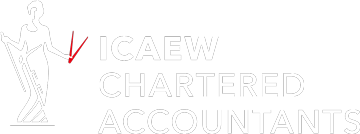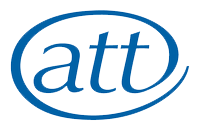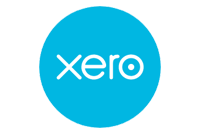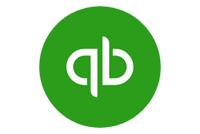Accounting records in a restaurant business are essential for its success. In addition to helping in strategic decision making, it is the way to continually assess the state of your finances and ensure your profitability.
The importance of keeping a correct accounting in the restaurant is such that without it, you would not know how much money enters and leaves your organization, nor could you plan for future growth.
Restaurant accounting strategies make it possible to monitor the financial status of your business and allow you to prepare the results reports and projections that guide the way forward.
Personal accountants can transform restaurant business practices
They are the professionals in charge of identifying, measuring and communicating the financial information of the restaurant that will be used to make informed decisions.
This is done through the settlement of accounts payable, accounts receivable and other financial transactions. There are many accounting software that can now be used to keep this record. In general, those who carry the books focus on the details, while the accountants analyze the broad financial landscape of restaurant, and prepare the financial reports and design their accounting strategy, which includes projections and tax returns.
One of the most challenging parts of managing a restaurant is dealing with accounting. If you already have some training in this area, great! But we know that this is not the reality for the vast majority of restaurateurs, who are more accustomed to seeing letters and fresh ingredients than numbers.
Accounting may seem like a nemesis, especially when we find Excel sheets full of commas and decimals. They are added with piles of invoices and card receipts to be analyzed. And, of course, with the fixed values of the accounts payable and with the payroll of your employees. Restaurant accounts spreadsheet is a challenging aspect.
We also don’t like to stress with numbers and spend whole days on mechanical finance tasks. Therefore, here are some techniques and tools to keep your restaurant accounting, which will not only save you time. But it will also help you focus on your dishes and customer service.
Restaurant accounting challenges 101

Lack of working capital
A primary reason why restaurants fail during the first few years of operation is the lack of working capital. Working capital is the immediate and easily accessible funds in the form of cash that is required to pay and cover the day to day expenses of your restaurant.
Managing a restaurant, accountants tend to face this challenge of securing an adequate amount of working capital. No amount of upfront investments or capital injections can help in this regard. Accountants are needed to make sure they have sufficient funds available to meet pressing expenses. The immediate costs can be of an emergency case, a stubborn supplier, or an external factor.
Weekly inventory
How long to keep accounting records? Restaurants are required to keep an up to date weekly inventory of all items coming into the restaurant. The need for a weekly list is not so applicable in the other business models. However, in a restaurant is crucial because of the nature of business.
A restaurant purchases supplies of food items which are considered perishable goods. All perishable products have a limited lifetime and are likely to expire in a short period. Which means you can not purchase perishable items on a bulk basis. Accountants must manage their inventory to make sure that perishable goods reach an optimum level – not too little or not too much.
Many restaurants incur a hefty cost due to this problem. Accountants do not keep a check of weekly inventory and the goods which come in and come out.
Accounts payable
Accounts payable is a matter of keeping professional terms with your suppliers. Your suppliers play a substantial role in the management of your restaurant. Some of the most prominent restaurants in the hospitality industry work with top-tier suppliers whose raw materials and products are of the most exceptional quality.
Many suppliers prefer working with established and high grossing business ventures. For SMEs, they are challenging to get by, which is because a small restaurant finds it challenging to pay for goods from suppliers on time. At the same time, they cannot allow credit terms. To effectively manage the accounting of a restaurant, every accountant must ensure that they pay critical suppliers on time for their goods.
Effective accounting strategy

1. Plan your restaurant accounting
Before executing your daily tasks, generating accounting analysis and analyzing the metrics about your finances, it is necessary to ask yourself some questions that will help you in the following steps:
- How many suppliers work with you?
- What is your budget for expenses and raw material every month?
- How much do you spend with your employees?
- Do you work with commissions? Do these vary a lot?
- Does your store’s performance vary by month?
- Do you have a reserve of enough money for possible unforeseen events?
2. Control your sales and costs daily
It is essential to have regular control of everything that enters and leaves your box, according to the products or services sold and the fixed and variable expenses. That way you won’t have big surprises at the end of the month.
If you work with a reputable POS, you can access all your sales data from your back office. With the details classified and filtered by date, time, seller, type of product and even the place if you have more than one. Besides, you can also compare them with previous years. But the most material thing is that you can analyze them from wherever you are, through any computer or mobile device.
3. Have payroll up to date
More than paying your employees, at the end of the month, you have to deal with all the legal and accounting standards that come with having more people working for you. Preparing payrolls is essential and should be organized before payday. So you can prevent yourself from any unforeseen event.
To do this, you should check that payrolls are broken down and that they specify the area in which each member of your team works. It is imperative to include deductions, fixed and variable values, days and hours worked and the payment date. If you don’t have your payroll model yet, there are functional websites where you can find hundreds of templates and choose the one that best suits your restaurant.
4. Set schedules in your calendar to manage your accounting
First, you should not wait for the end of the month to make your accounting reports and review your finances.
It is essential to separate a gap in your calendar every week (at least) to review your accounting, schedule your payments and analyze your performance. Respecting this schedule, not postponing it and being 100% attentive to it, without external distractions will help you finish these tasks more quickly.
5. Digitize your invoices

When you work with fresh ingredients, it is most likely that the value of the raw material invariably changes throughout the year. And always controlling the fluctuation of costs is not only involving. But it can also take a lot of time of your day.
Example: your main course has zucchini, and you have to buy a large volume of this ingredient. A simple change of 50 cents in the value of the kilo can make a big difference at the end of the month.
Surely you will also have to make purchases of raw material daily or even several times a day. Supposing that you work with many suppliers, you will need to take into account even more data (and papers).
With platforms, you can digitize your invoices in a few steps and access all this data from your POS. The process is straightforward:
- Take a photo of your invoice and upload it to the system.
- The system automatically reads the data in this document.
- You already have the cost of your updated products.
- Now you can see the data you need from your POS, in texts and graphics.
6. Choose an accounting system
Each restaurant is its world with different needs, employees, benefits, fixed and variable expenses and even various taxes. Which varies from restaurant size, location, your business model, if you work with partners, and if you have a franchise.
When choosing an accounting system, you must take into account if it can adapt to the size of your restaurant. But the most important thing is to select a tool that facilitates the accounting of variable data — both at the payroll level (for hours worked and sales) and at the level of supplements. Good examples are Intuit QuickBooks Online and FreshBooks.
7. Outsource accounting
All the tools mentioned above will help you a lot. But there is nothing like having an expert to advise you with the accounting of your restaurant. Therefore, if you do not have time and want to pass this task to someone who knows the subject, we recommend that you hire an accounting professional. Ideally, someone who is a specialist in the area and already has companies like yours as clients.
8. Don’t leave everything to the last moment!
We must keep more constant control of the accounting of a restaurant without leaving much time between supervision. The idea is to hold weekly periodic monitoring, without taking a big blow a the end of the month.
In this way, you can compare the periods of more sales and fewer sales.
More and more restaurant managers and owners are joining the digital transformation and business intelligence. Thanks to these solutions, they are getting this complicated work done much more quickly and easily.
9. We must review the accounting on the accrual basis instead of cash
That is so that we do not get lost. We must evaluate the notes from the moment the obligation of payment or income occurs, and not when it becomes compelling.
In this way, we will have a more accurate picture of real income and expenses than that of the numbers that cash accounting can provide us.
10. Avoid cash accounting

Although cash accounting is the simplest model of accounting, it is certainly not the most accurate method of keeping track of all activities. Cash accounting does not cover the delay in payment of credit accounts and payment plans. For example, under the criterion of accounting for the cash register, the restaurant records deliveries to its suppliers only when paying for them.
However, restaurants have supply accounts with their suppliers that allow them to pay for their supplies in weeks and even months after they receive stock. Through the accounting activity, cash accounting will show that the restaurant experiences significant expenses in periodic deliveries when, in fact, deliveries are minute and take place regularly.
The perfect solution does not exist yet. But after these tips, we are sure that keeping your restaurant’s accounting will be more comfortable and less stressful.
How does accounting influence the success of the restaurant?
The accounting records provide the internal management team with the information they need to keep the business financially healthy.
Some of that information originates from recorded transactions, while another part consists of estimates and projections based on various assumptions.
To prepare the projections of the restaurant, the accountants take various formulas, the so-called accounting ratios, which help to discover conditions and trends. These conditions and trends are difficult to find by inspecting the individual components that make up the ratio.
The accounting information gives senior management a broad and clear perspective of how the business is performing financially, making available the information it requires for optimal decision making.
The work of the accountant leads the restaurant to success because the data and the financial analysis it provides help to:
- Guarantee profitability.
- Plan for the future.
- Boost productivity.
- Set optimal production costs.
- Provide an overview of the business’ financial situation.
Bottom line
Sustainable growth would not be possible without all the information that the accounting area provides for decision making.
Every organization that performs permanent or occasional operative activity needs to control the operations that alter its assets and liabilities. By doing so, the administration and financial management can make informed decisions that have positive outcomes.
Accounting is essential to all companies because it enables easy negotiations. It allows you to be more productive with your assets. There is no denial in the fact that accounting services are necessary for gathering general information.
Hounslow Office
Profile West
Suite 2
Floor 1
950 Great West Road
Brentford
TW8 9ES
Ealing Office
The Saunders House
52-53 The Mall
Ealing
W5 3TA
Telephone: +44 (0) 208 577 0204
E-mail: staff@majesticaccountants.com












